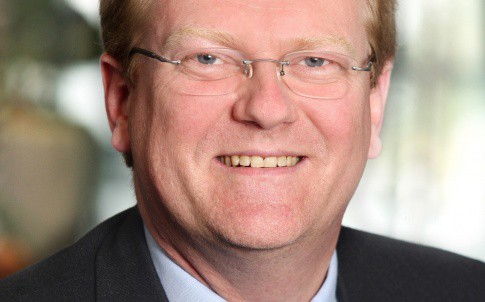
But for Dr Stefan Hartung, who heads up Bosch’s energy and building technology business, the way that ubiquitous products like this evolve will be at the heart of how we deal with some of mankind’s most fundamental challenges.
Talking to The Engineer at Bosch’s global headquarters in Stuttgart, Hartung discussed the trends that are shaping the German industrial giant’s next generation products and outlined a compelling vision for the role that technology can play in helping us maintain our living standards whilst reducing our carbon footprint.
There are, he said, two extreme theories on how to “save the planet”: either we trust technology to solve all of our issues by enabling us to use as much energy as want with no ill effects, or we force humanity to fundamentally change it’s behavior and turn its back on the comforts of the modern world.
In Hartung’s view, neither approach is realistic: ‘We will need more energy purely because more people will attain a life that’s more equivalent to what we call a life today. But technology will not be able to bring this consumption increase CO2-free.’
Instead, he believes that the solution lies in a compromise. That if we’re clever about the way we develop and use technology, then reducing energy use and improving quality of life can actually go hand in hand.
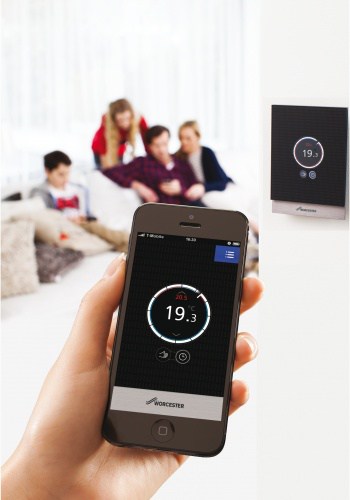
‘The worst thing we do is waste energy,’ he explained. ‘Running an old boiler system, running a car which is way beyond emissions standards – doing things that aren’t fun, don’t give you comfort, are not even a luxury but waste huge amounts of energy’. And in every case, he said, it should be possible to save energy whilst improving the user experience.
Hartung pointed to Bosch’s work on smart domestic technologies as a key example of how this can be achieved. Many of the company’s domestic boilers now come fitted with a range of energy saving control systems which for instance, monitor the outside temperature and adjust the output of the boiler accordingly. And later this year, UK customers will be able to buy boilers equipped with the company’s Wave technology, a control system that enables users to remotely operate, programme and monitor heating and hot water from a smart phone.
Further into the future, Bosch envisages ever-greater levels of connectivity, where, for instance, internet-connected appliances are able to base their activity on up to the minute energy prices, and the firm is currently working with ABB, Cisco and LG on the development of a common platform for smart home technologies.
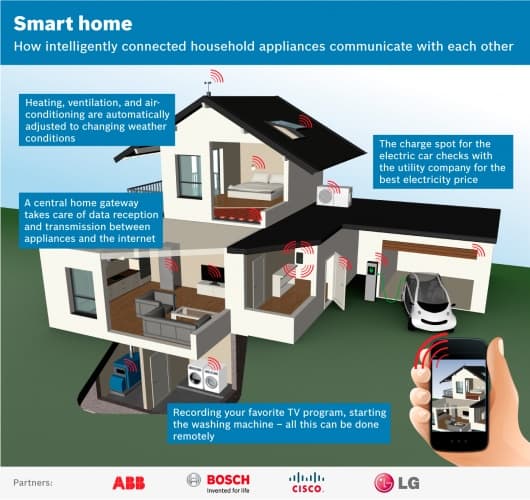
But whilst this vision of the future will undoubtedly be attractive to many tech-savvy consumers, Hartung is mindful of the fact that it must appeal to everyone if it’s to have a meaningful impact on energy usage.
Fortunately he believes that today’s highly intuitive touch screen technology makes it easier to design and introduce systems that can be modified to appeal to a range of different user groups. ‘The interface medium is absolutely appropriate,’ he said, ‘you have to adapt a bit – but it’s very often the case that you have a regular mode, an intense mode and a specialist mode where you only go if you are a geek. It’s a pure interface design question. And we can handle that.’
It’s Important to remember that consumers don’t think like engineers. Engineers tend to be obsessed with drawings, a non-engineer would rather have a conceptual thing.
In order to ensure that its products are in tune with these differing user requirements, Bosch employs a group of consumer experts - or “user experience specialists” - to help the engineering team keep focused on the customer. ‘It’s Important to remember that consumers don’t think like engineers,’ said Hartung, ‘engineers tend to be obsessed with drawings, a non-engineer would rather have a conceptual thing.’
He explained that these experts help shape not just the end product, but every step of the “user-journey”; from the product information that’s available on the internet to prospective customers, through to the experience of opening the packaging for the first time. ‘It’s very important that the engineers adjust their work to this research,’ said Hartung, ‘otherwise you can end up with a whole bunch of technology that nobody wants, that doesn’t change anyone’s behavior, and just ends up in the dustbin.’
One particularly useful tool that has come out of this approach is the development - with the help of Fraunhofer institute researchers - of an online home efficiency tool that customer can use to build a simulation of their home and calculate the efficiency gains that could be made by taking different measures such as replacing windows, changing boilers, or installing insulation.
Another key market for Bosch, explained Hartung, is the commercial sector, where despite being more clearly driven by economic imperatives, the push for greater energy efficiency can still go hand in hand with an improved user experience.
A good example, he said, is the work that Bosch is doing through its subsidiary Bauer Optimisation (BaOpt), a climate control specialist that’s helped a number of businesses save money by fundamentally redesigning their air conditioning systems.
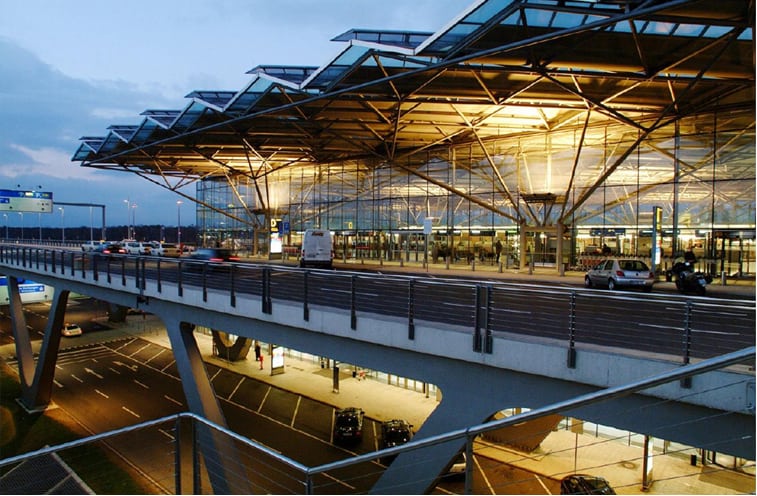
Hartung explained that by taking a close look at the flow of air through a building, redesigning the positions of jet-ins and exits for air, and using a network of sensors to monitor a building’s air temperature, the firm is able to use an intelligent algorithm to actually reduce the amount of air being pumped around whilst improving comfort.
In perhaps the most compelling application of the technology to date, Hartung said that BaOpt recently helped the operators of Cologne airport save around 30 per cent of their annual energy consumption: ‘The facility manager was desperate, in the summer it was so hot because there’s so much glass. There was huge cooling power all over the place but it never got cool. I think this technology has a big future, it shows that sensor technology can save huge amounts of energy and increase comfort at the same time.’
Clearly, one of the major challenges of connectivity – whether in the home or on the factory floor - is storing and interrogating the vast amount of data that’s generated on an almost continual basis.
One trend that Hartung sees as being vital if we’re to avoid drowning in a sea of information is the development of devices with in-built intelligence, systems that are able to filter information, and only provide the end-user with data that is relevant. And Bosch’s recent work on security cameras is, he said, a good example, of how the company is getting to grips with this challenge.
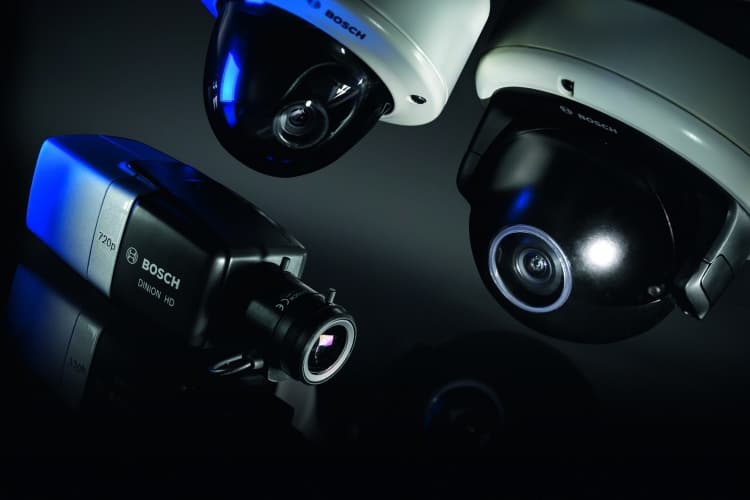
‘Our cameras have intelligent video analysis built in which means the camera itself has a video processor and IP line,’ he said. ‘It doesn’t constantly send data because you can program it to only send a picture if, for instance, it sees a human walking in. Then, when it sees a human it tracks back 25 seconds in its own memory and send you the sequence.’
Such systems, he said, will fundamentally reshape the role of the security camera, and make it possible to deploy far more of them without creating massive amounts of data. And it’s an approach that he believes will change our relationship with a range of different technologies.
‘There’s a huge amount of technology coming which if you do it right, is a perfect add onto the modern world,’ he said. ‘But it’s different to what we know today.’
BIOG
Dr Stefan Hartung
Head of Bosch Energy & Biulding Technology Business Sectors
Education
Studied mechanical engineering at RWTH Aachen, specializing in Product Engineering.
PhD on methods of quality management.
Career
- 2004 Director Dishwashers product area including responsibility for product marketing, Bosch und Siemens Hausgeräte GmbH
- 2008 Executive Vice President Manufacturing, Supply Chain, and Asia, Power Tools Division
- 2009 President of the Power Tools Division
- January 2013 Member of the Board of Management, Robert Bosch GmbH




Red Bull makes hydrogen fuel cell play with AVL
Formula 1 is an anachronistic anomaly where its only cutting edge is in engine development. The rules prohibit any real innovation and there would be...